
Crowds flood the entrance to CES Day 1
It's the first official day of CES, which means tons of visitors, journalists, and exhibitors hitting the showroom floor.
Netflix goes live in 130 new countries
Reed Hastings, CEO and co-founder of the video-streaming company, took the CES stage today to announce that Netflix has expanded to 130 more countries, growing to just about everywhere but China.
The announcement marks a huge expansion for the company's streaming service, which was previously available in 60 countries.
The new countries include South Korea, India, Nigeria, Poland, Russia, Saudi Arabia and Singapore. Hastings said Netflix hopes to reach China in the future, as well, but offered no specific time frame.
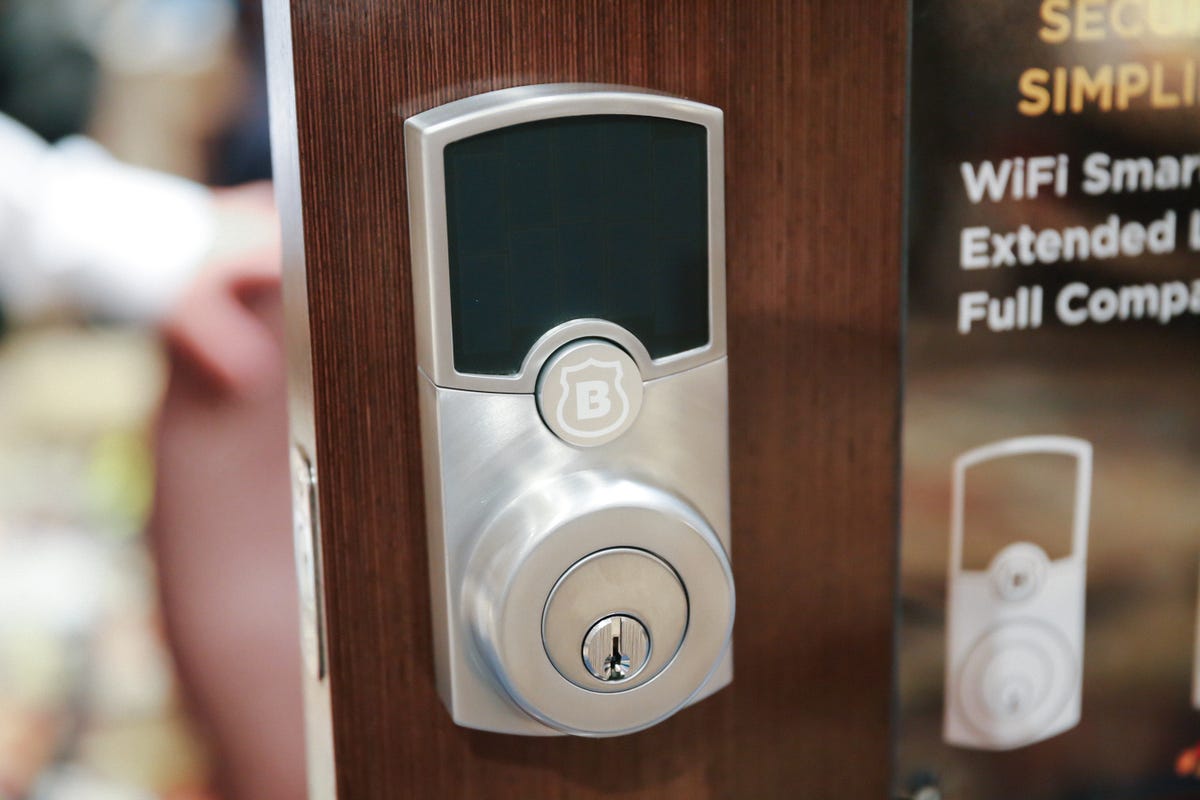
Brinks Array
The Brinks Array, the first smart lock from the respected security firm, looks industrial but along with solar power, it packs in plenty of friendly features.
With built-in Wi-Fi, the Brinks Array connects directly to your router so you can use the iOS or Android app to lock and unlock your door from anywhere.
Intel Compute Stick (2016)
Dan Ackerman checked out the latest version of the Intel Compute Stick. The look and feel is similar, although this new version adds a little bit of length to the chassis. That's because rather than the single USB port on the first Stick, this new model has two ports (one USB 3.0, one USB 2.0), which will be handy if you want to plug in wireless dongles for a keyboard and mouse, or any other peripherals. Of course, the smart move is connecting a Bluetooth keyboard and mouse to avoid dongles altogether.
The new Intel Compute Stick is shipping now, for a suggested retail price of $159 in the US.
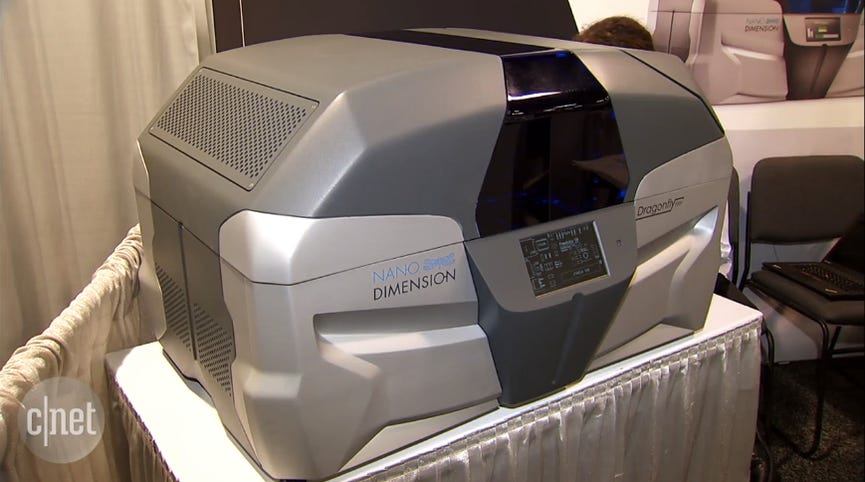
Dragonfly 2020 3D printer
Lexy Savvides went hands-on with the Dragonfly 2020 from Nano Dimension, a 3D printer that has the potential to change the electronics manufacturing industry. It prints circuit boards within hours.
Sony PSH-X500 turntable
Sony's PSH-X500 USB turntable lets you rip your records in Sony's DSD format natively, which is actually a pretty cool thing. Most onboard solutions limit users to 16-bit/44.1kHz or CD quality. Of course, you'll need a compatible player like the Sony Walkman or other software to playback DSD files.
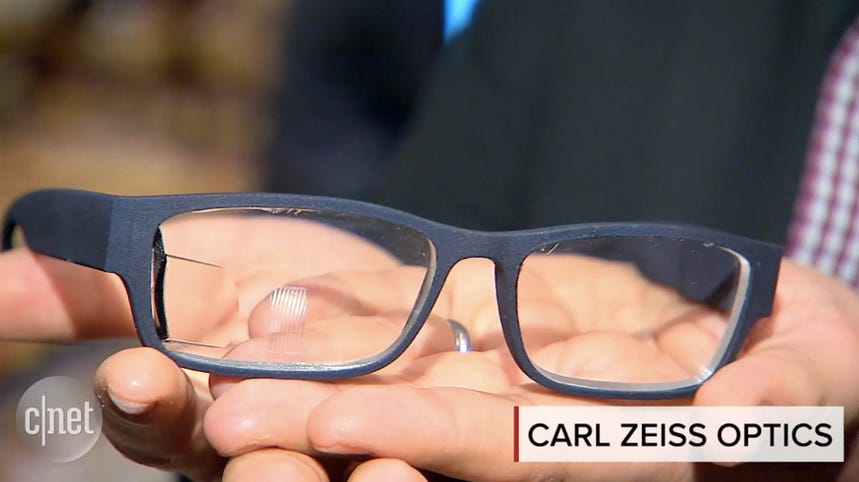
Carl Zeiss Optics
Scott Stein stopped by the Carl Zeiss booth to check out polycarbonate glasses that magnify the smart technology inside. They don't look like smart-glasses, and that's the point, with Carl Zeiss Optics leading the charge.

Netgear Arlo Q security camera
The indoor-only $219 Netgear Arlo Q security camera can do 1080p, motion, and audio alerts. You can also set activity zones to customize your profile. And it works with the same app as the original, indoor-outdoor Arlo for a whole-home security setup.
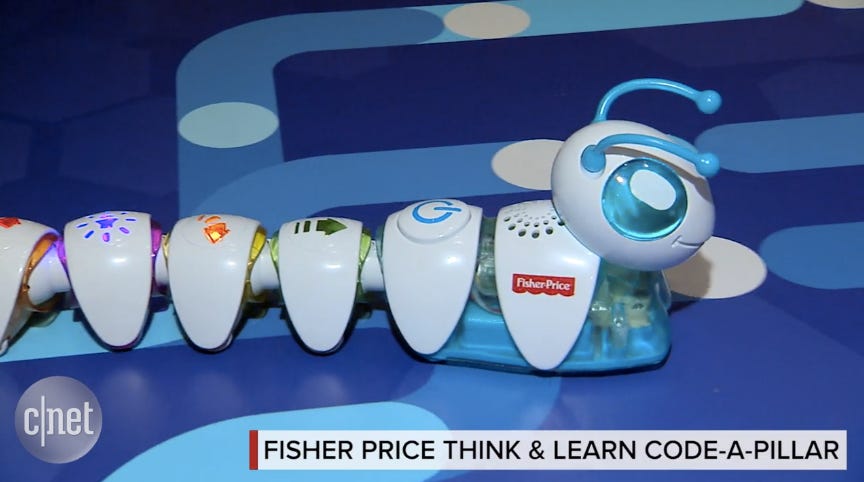
Fisher-Price Code-a-Pillar
The Code-a Pillar is a $50 toy that blinks, flashes, and crawls around while also teaching your kid how to code. Built for ages 3 to 8, you can also get expansion packs that add different functions. Have fun and learn at the same time!
Omron Healthcare Blood Pressure Monitor
Available at the end of 2016 for $200, Omron says its blood pressure monitor will let folks with severe high blood pressure keep better track of their numbers in a more discreet way. Omron's app will also keep tabs on your blood pressure readings so you can share the info with your doctor.
Scott Stein interviews Fitbit CEO James Park
The CNET Stage was the place to find CEOs such as Fitbit's James Park (pictured) and Misfit's Sonny Vu talking about their new CES product debuts, the Fitbit Blaze and the Misfit Ray, respectively.
Asked about the mixed critical reaction and stock price dip after the Blaze announcement, Park said, "We want to create devices for our consumers, not necessarily for the press or Wall Street."
2017 Chevrolet Bolt
Check out the 2017 Chevy Bolt in the flesh! Chevrolet engineers have developed a flat battery pack for the car that sits in the floor, much like that found in the Tesla Model S. This means a nice, low center of gravity for handling, but it also means no transmission tunnel and nothing but a flat, clean surface for designers to build upon.
The Bolt will be available to consumers nationwide for a starting price somewhere below $30,000. Just to be clear: that's after a $7,500 federal rebate for EVs, so the MSRP will probably actually be closer to $37,500.
Few would genuinely call that "cheap," but at that price the Bolt will become the best mix of cost and range for a mass-market EV.
Hexoskin Smart
The Hexoskin Smart shirt is equipped with Bluetooth Smart, which improves battery life (yes, you have to charge it) and makes the shirt compatible with a number of third-party apps.
The Hexoskin Smart is available now for preorder through Indiegogo. Interested buyers can pick up the shirt for $299, a $100 savings on its retail price. The shirt is slated to arrive in May.
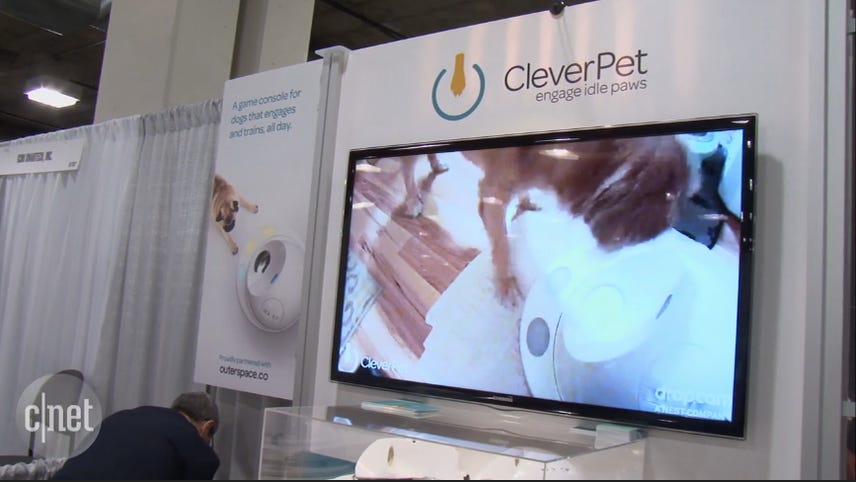
CleverPet
Worried your dog or cat is bored at home while you're away? Keep them occupied with this game console that dispenses food while they learn.
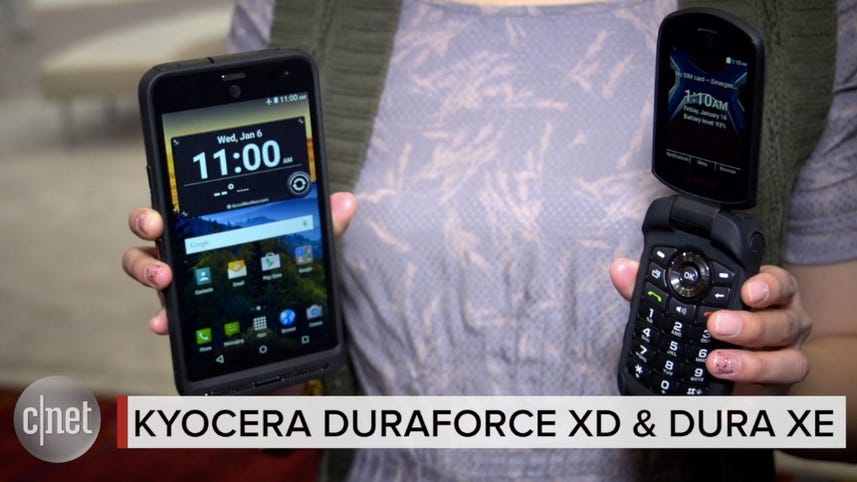
Kyocera DuraForce XD smartphone and DuraXE flip phone
Lynn La checked out the Kyocera DuraForce XD smartphone and DuraXE flip phone -- both are built supertough and waterproof.
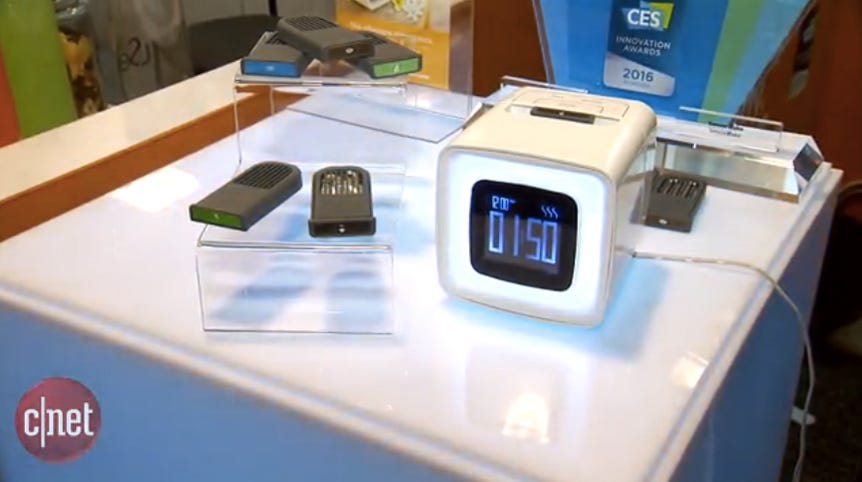
Sensorwake
Lexy Savvides played around with an alarm clock that wakes you with the sweet smell of coffee, mint, croissants or even bacon.
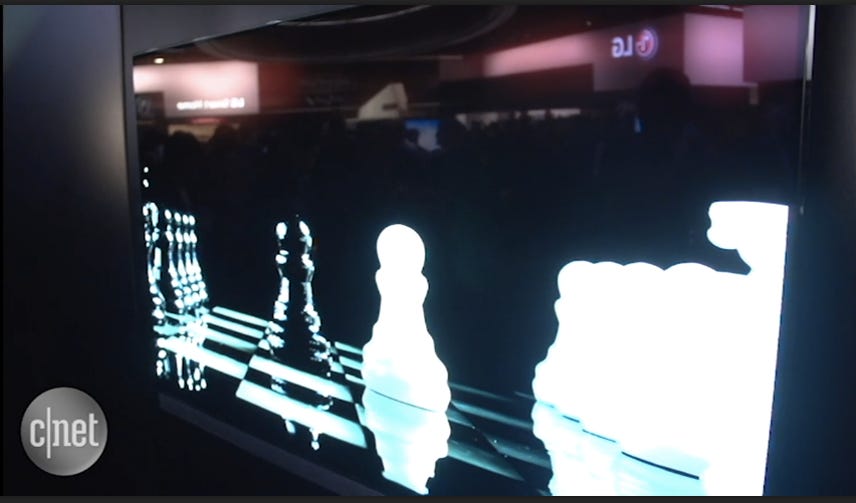
LG E6 OLED
The LG E6 OLED TV is LG's second-most-expensive for 2016, featuring an ultraslim glass-on-glass design.
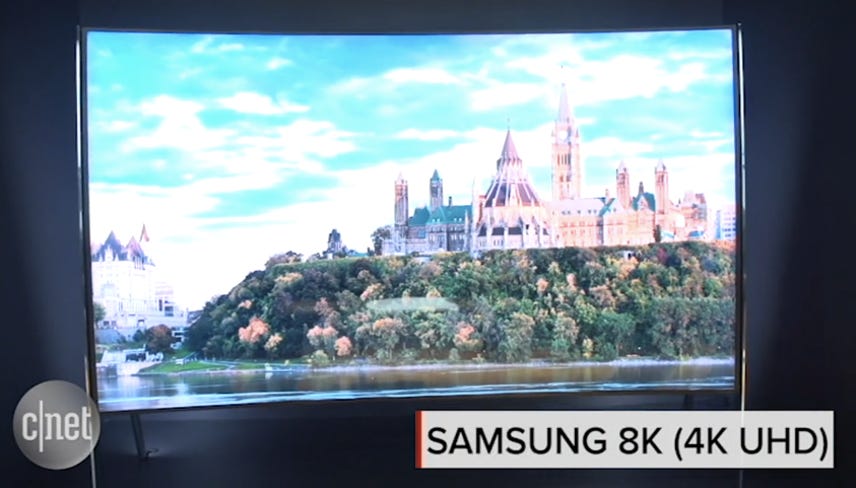
Samsung curved 98-inch 8K TV
Billed as the biggest 8K curved SUHD TV in the world, this massive set is supposedly shipping in 2016.
Daqri Smart Helmet
Jessica Dolcourt tried on the Daqri Smart Helmet that uses its clear plastic panels to project AR, or artificial reality, onto the screen. The point is to keep its wearer's hands unencumbered by extra devices or paper instructions, and the substance of what someone might see on the head-up display is entirely based on the person's job role at the site.
Check out the rest of CNET's CES 2016 coverage here.
Razer Blade Stealth
Razer's newest laptop is its smallest and cheapest yet. The Razer Blade Stealth is a 12.5-inch ultrabook that will start at $999 (which converts to AU$1,410, £685).
The base model fits a super high-definition 2,560x1,440-pixel resolution touchscreen display, a Core i7 processor, 8GB of memory and 128GB of solid-state storage into a light 2.75-pound unibody aluminium frame. More expensive variants of the device come with a 4K screen and up to 512GB of solid-state storage.
The company will also be releasing the Razer Core, an external graphics docking station that allows you to use any desktop-grade graphics card to power the Razer Blade Stealth, for an undisclosed price in the first half of the year.
HomeAdvisor
HomeAdvisor, a free app with a growing list of collaborators, will soon be able to automatically find the appropriate service person for you should your smart home detect a problem.
For example, if your (HomeAdvisor compatible) system senses a leak, you'll receive a notification as usual, and less than a minute later, a plumber from your area will call you. The app's back end algorithm searches through the same options it would normally present to you, calls them for you, and once someone answers, sends you the call.
Tardisk Pear
Tthe tiny Tardisk Pear, available now, can add up to 256GB more data to MacBook's without any hardware. It works by creating a single managed logical storage volume on your computer, which mean that it provide extra space and allows OSX to decide where to store your files.
As you use your computer, files you access most often will stay on your computer, while others will get offloaded to Pear. The device ultimately gives you much more storage, so you don't have to delete files or offload them to an external hard drive.
Samsung's TipTalk
The Samsung-backed TipTalk is a clever new "smart strap" for traditional watches, adding fitness tracking, notifications and calling features to any watch. Its greatest trick? Letting you take calls by pressing your finger into your ear like some kind of kids' make believe fake phone game has become reality.
Oculus Rift
There was big news on the Oculus Rift front coming out of CES Day 1. It was announced that the final consumer version of the Rift headset will sell for $599, £499 and AU$649 and is scheduled to go on sale on March 28.
Wilson X Connected Football
Sporting goods giant Wilson is developing the world's first smart football. The Wilson X Connected Football includes a built-in sensor that can measure speed, distance and spiral efficiency of your throws. The ball can even detect if your buddy catches it or drops it.


